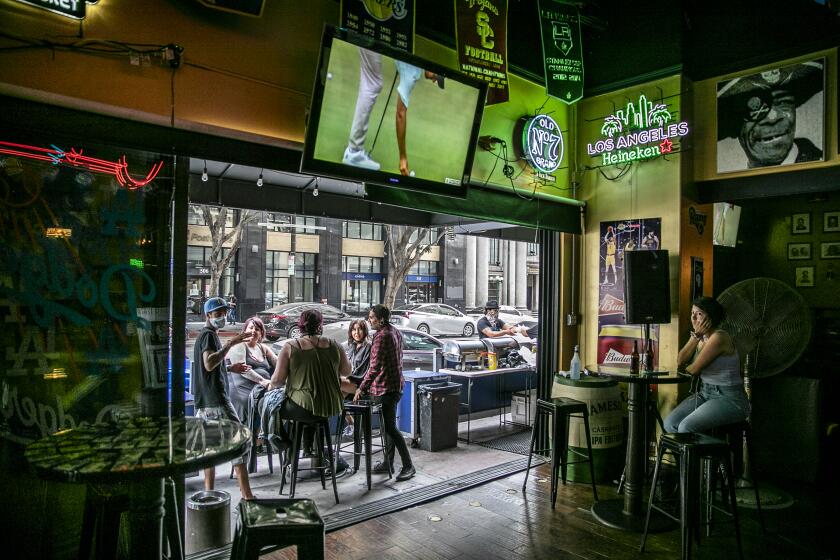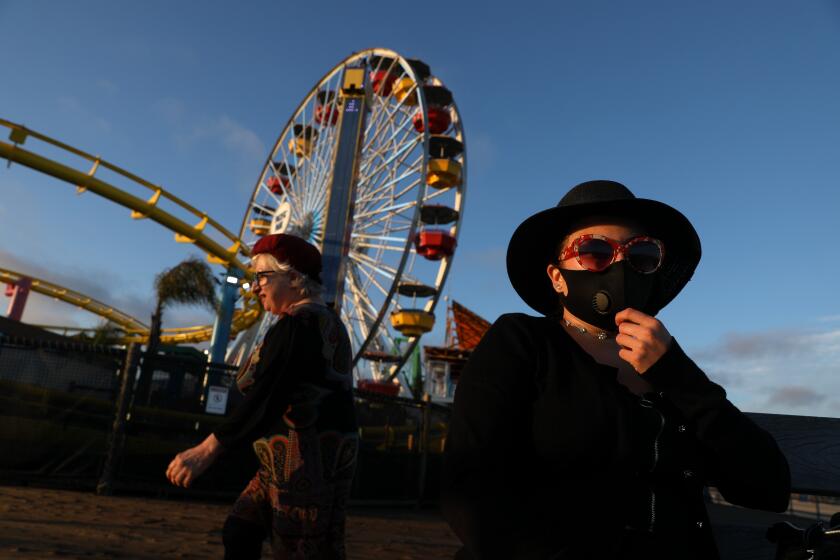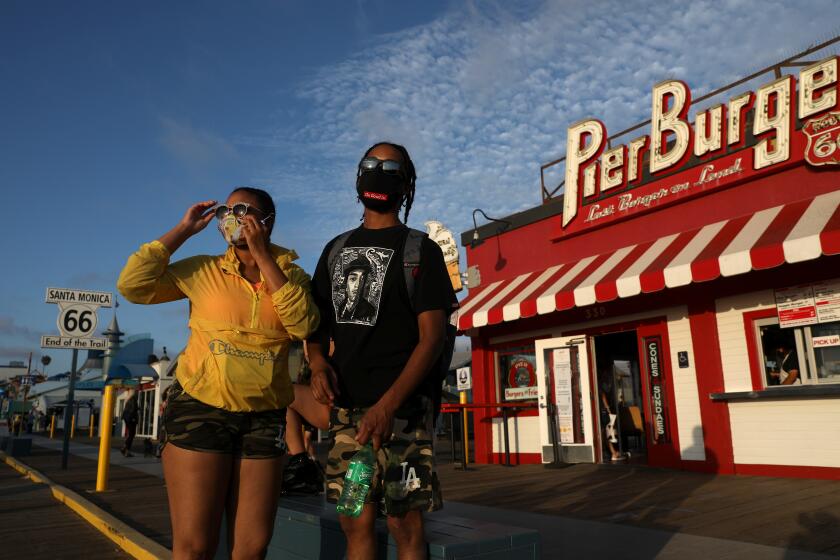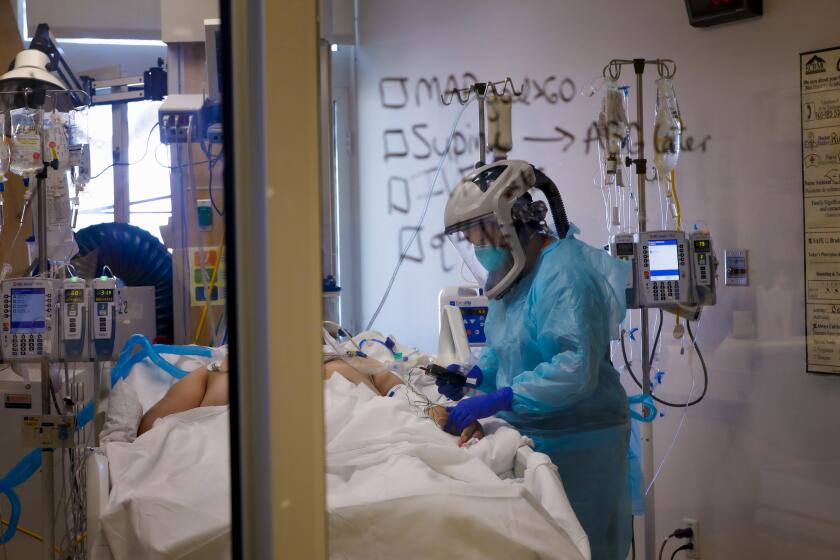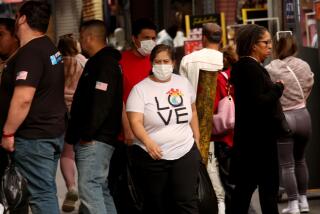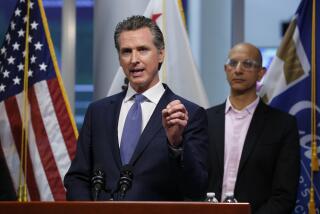California’s mask order tests the limits of Newsom’s executive power
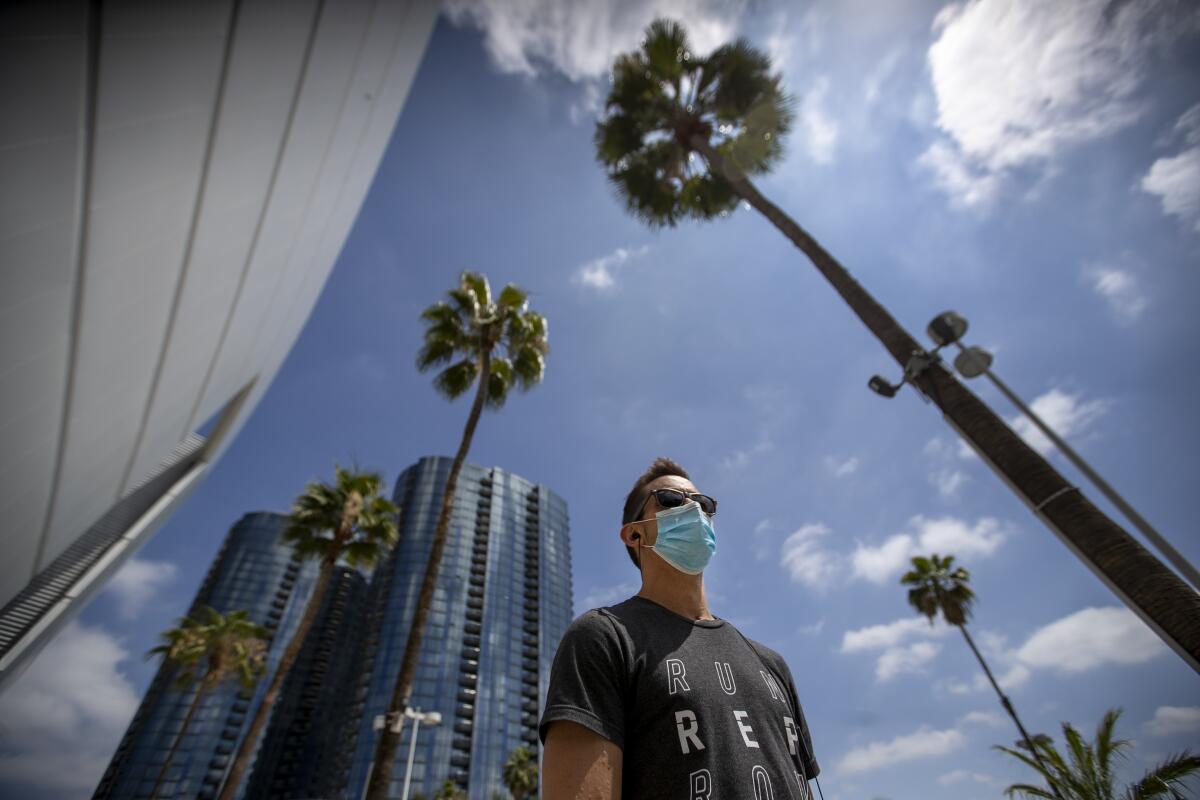
SACRAMENTO — Gov. Gavin Newsom’s order June 18 requiring all Californians to wear face masks came as welcome news to those in the state concerned by the recent surge in COVID-19 cases. Nevada City Mayor Reinette Senum instead greeted the mandate with a message of defiance.
“Our governor does NOT have that unilateral power to make such orders,” Senum said in a Facebook post, joining sheriffs in Orange, Riverside, Sacramento and Fresno counties who have said they will refuse to enforce Newsom’s decree.
“What he should have done is done the right thing — go through the legislative process,” Senum said. “There was no public discussion, no room for public discourse.”
Since shortly after the outbreak began, Newsom has faced criticism from some over his ample use of executive authority during the COVID-19 pandemic. He has been peppered with legal challenges over a range of issues related to the pandemic, including the ban on in-person church services and declaring gun shops as essential businesses, with a number of cases still pending.
But the Newsom administration’s directive ordering all Californians to wear face coverings while in public — with limited exceptions — appears to be on solid legal ground, according to some state constitutional experts.
The governor has widespread power to respond during a state of emergency such as a pandemic, as does state Public Health Officer Sonia Angell, said Stephen M. Duvernay, a senior research fellow at Berkeley Law’s California Constitution Center.
Bars in these California counties are immediately affected by the state order: Los Angeles, Fresno, Kern, San Joaquin, Tulare, Kings and Imperial.
After consulting with the state’s top public health officials and senior advisors in his administration, Newsom approved their recommendations to have the state Department of Public Health implement the mask mandate. Newsom’s stay-at-home order, signed March 19, requires “all Californians to heed the state public health directives from the Department of Public Health.”
“The Emergency Services Act authorizes a governor to assign the Department of Public Health duties concerned with mitigating the effects of an emergency like the current pandemic,” Duvernay said. “And DPH has independent statutory authority to take measures necessary to prevent the spread of a disease.”
To combat a contagious, infectious or communicable disease, Angell can “take measures as are necessary to ascertain the nature of the disease and prevent its spread,” according to the state health and safety code.
“The Department of Public Health would appear to have sufficient authority to direct the public to wear masks in order to prevent the pandemic’s spread,” said former state appellate court Judge Daniel M. Kolkey, who served as Republican Gov. Pete Wilson’s legal affairs secretary and later as an advisor to Gov. Arnold Schwarzenegger.
Under California law, the state public health officer’s orders are enforceable by county sheriffs and other local police agencies, and people who fail to comply can be charged with a misdemeanor.
Newsom has repeatedly said he hopes to use the power of persuasion and education to make Californians heed the order to wear masks and abide by other state-mandated coronavirus-related restrictions, but he vowed to take action if necessary.
Los Angeles County public health officials on Sunday reported 2,542 more cases of the coronavirus and 20 related deaths. It was the county’s second-highest daily total of new cases since the pandemic began.
Newsom did just that on Sunday, when he ordered bars, brewpubs and nightclubs to immediately close in seven California counties because of an alarming increase in the spread of the coronavirus. The Newsom administration also recommended eight other counties take action on their own to close those types of businesses.
“Our approach at the state level has to be guided by enforcement at the local level first, but we have made it clear ... that we have tools at the state level,” Newsom said.
Opposition to the mask order continues to stir. Members of the group Freedom Angels, anti-vaccine activists who have protested against the governor’s coronavirus actions, have accused Newsom of abusing his power.
“Welcome to Prison Planet,” the group posted on Facebook.
San Francisco attorney Harmeet Dhillon expects a judge to ultimately decide whether Newsom’s mask order is proper. Dhillon has filed more than a dozen lawsuits on behalf of individual clients and her nonprofit, the Center for American Liberty, challenging the governor’s executive actions during the COVID-19 pandemic.
She criticized Newsom’s mask order, which includes a requirement that Californians wear face coverings outdoors if they cannot socially distance from others. That’s government overreach, she argued, since there isn’t sufficient evidence to show that the virus is easily spread outdoors. Dhillon said she has asked both the state and counties for the scientific basis for their mask orders and has not received an adequate response.
Los Angeles County public health officials on Saturday reported a continued rise in new coronavirus cases and hospitalizations, saying the increase came at “a critical moment” in the county’s reopening.
“Of course, the governor has powers,” said Dhillon, who represents California on the Republican National Committee. “The problem is the orders that are overly broad, that are vague, that pick winners and losers. Which the governor did from Day One.”
Kolkey agrees that the legality of some of Newsom’s executive actions during the pandemic, which he issued under his expanded powers during the state of emergency, remains unclear.
That includes Newsom’s executive order to expand the rights of workers classified as “essential” to file workers’ compensation claims, Kolkey said. Newsom also signed an executive order requiring major food companies to provide two weeks of supplemental paid sick leave for full-time workers who contract COVID-19 or are exposed to it.
Kolkey said he believes that those orders amounted to the creation of new laws, which is solely within the purview of the Legislature, and that the California Constitution expressly prohibits persons in one branch of government from exercising the powers of the other two branches.
That’s the case even though the Legislature has passed laws granting the governor enormous power during times of emergency, including the right to suspend statutes and regulations, the authority to exercise the police power vested in the state and the right to make and rescind orders and regulations to carry out these powers.
The Legislature “cannot abdicate its power to legislate during an emergency and transfer it to the governor,” Kolkey said.
Local and state officials met in El Centro on Saturday to create a plan to deal with a high number of coronavirus cases and hospitalizations.
The Newsom administration said that, under California’s Emergency Services Act, the governor has substantial authority during a state of emergency, including, the legislation states, “complete authority over all agencies of the state government and the right to exercise within the area designated all police power vested in the state by the Constitution and laws of the state of California.”
“Multiple courts considering the question, including California state courts, federal courts in California and the United States Supreme Court, considering an executive order Gov. Newsom issued, have confirmed the governor’s broad authority to take necessary steps to protect public health during the pandemic,” Kate Folmar, spokesperson for the state Health and Human Services Agency, said in an email.
The courts have thus far been somewhat deferential to the governor’s executive actions during the public health crisis.
In late May, the 9th Circuit Court of Appeals upheld Newsom’s ban on in-person church services as part of his stay-at-home order. The Newsom administration has since allowed church services to resume in most counties, as long as they abide by state-imposed safeguards.
“We’re dealing here with a highly contagious and often fatal disease for which there presently is no known cure. In the words of Justice Robert Jackson, if a ‘[c]ourt does not temper its doctrinaire logic with a little practical wisdom, it will convert the constitutional Bill of Rights into a suicide pact,’” the majority wrote.
However, a Sutter County Superior Court judge earlier this month blocked Newsom’s executive order to impose new election rules on counties wishing to limit in-person voting in November to lessen the spread of the virus.
Judge Perry Parker called the order “an impermissible use of legislative powers in violation of the California Constitution and the laws of the state of California.”
An appeals court subsequently removed Parker’s restraining order. Meanwhile, the Legislature is set to take action on a bill changing election rules for this fall.
Times staff writer Taryn Luna contributed to this report.
More to Read
Sign up for Essential California
The most important California stories and recommendations in your inbox every morning.
You may occasionally receive promotional content from the Los Angeles Times.
